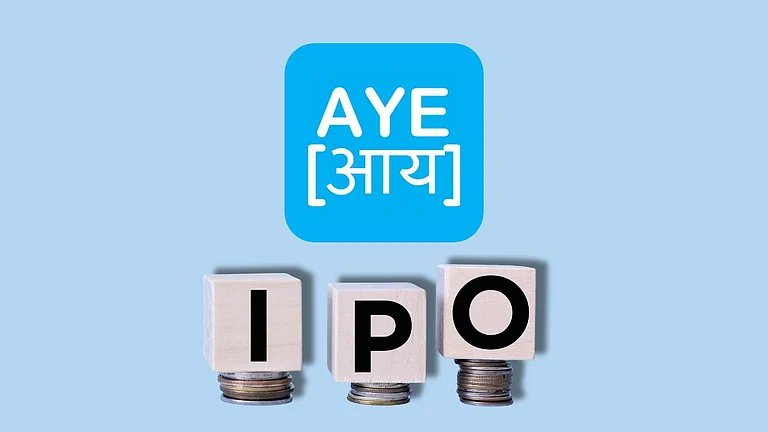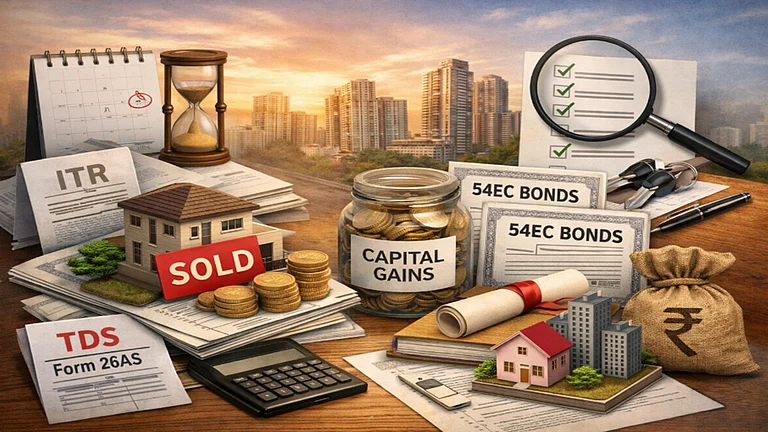As the Modi 2.0 government gears up to present Budget 2024-25 later this month, the realty stakeholders and people who intend to buy homes/property soon, keenly anticipate the measures that could catalyse the growth of the affordable housing segment in the country. “The real estate sector is at a crossroads as the government readies itself to present the Union Budget (2024-25). Though it has massive potential, the housing industry still struggles with many hurdles,” says Akash Pharande, Managing Director at Pharande Spaces - a Pune-based real estate development firm.
Experts believe that the budget must include tax breaks, regulatory reforms, and financial assistance measures to generate more growth and address the housing needs of the growing population, particularly in the low and mid-income segments.
Recently during its first Cabinet meeting, the Modi government announced that it will construct 3 crore additional houses under the flagship Pradhan Mantri Awas Yojana (PMAY scheme). Out of the 3 crore houses, 2 crore will be built under PMAY-Rural, while 1 crore under PMAY-Urban Yojana. While this scheme provides affordable housing to specific income categories, the industry by and large still needs to see better growth.
Anuj Puri, Chairman of ANAROCK Group mulls if the government will take any 'real' steps to revive the affordable housing segment, which, he says has been on a steady decline post-Covid years.
Affordable and mid-income housing
Affordable and mid-income housing meets the urgent housing needs of the majority of LIG and the middle-class population. The Indian housing sector remained upbeat in 2024 for the better half of the year wherein housing sales and new launches created new peaks in the top 7 cities, according to a recent ANAROCK research. “This momentum must continue in the future too,” Puri says remarking that the current growth trajectory is skewed toward mid-range and premium housing.
Taking into account the housing needs of the lower-income groups, the momentum needs to tilt towards the affordable housing segment.
The sales of the affordable housing segment dropped significantly after COVID-19 from over 26 per cent in 2022 and over 38 per cent in 2019 to around 20 per cent in the first quarter of 2024, according to recent ANAROCK data. About low demand, this segment’s share of the overall housing supply in the top seven cities also dropped to 18 per cent in Q1 2024, from nearly 40 per cent in 2019.
“Many interest stimulants previously extended to buyers and developers of affordable housing have expired in the last two years,” Puri says emphasising that the segment must be revived with high-impact initiatives including tax breaks for developers so that they will focus more on affordable housing, and for buyers to improve the affordability quotient.
To significantly boost this section, experts highlight the following strategies:
Changes and Measures Associated With PMAY Benefits
Puri suggests a revival of the Credit-linked subsidy scheme (CLSS) under PMAy for EWS/LIG which expired in 2022. This could incentivise first-time home buyers of affordable houses across various cities. As per certain government guidelines the CLSS was earlier available for housing loans to EWS/LIG buyers in new constructions, and for the addition of amenities like rooms, kitchens, toilets, etc. to existing dwellings. Under PMAY-Rural, the eligible applicant could avail of this subsidy for his/her 'kaccha' homes being converted into 'pucca' houses.
Subsidies and Loans
Pharande also emphasises a broader scope of the PMAY scheme and increasing the interest subsidy for housing loans. “Reducing interest rates will lower the financial stress of aspiring homebuyers. Both these measures would make homeownership more affordable,” he says.
Single-window Clearance
Pharande further calls for a single-window clearance system for budget home projects. This could streamline the complex approval process and reduce delays in possession of units, while also bringing down the overall costs.
Tax Benefits
Shubhi Jain, Principal Partner and Head of CRM, Square Yards proposes extended tax reliefs and a raise in deductions on home loans which currently is capped at Rs 2 lakhs.
Tweak the definition of Affordable Housing!
Puri suggests that the government should modify the definition of affordable housing criteria to include additional deductions benefits for buyers. The government identifies affordable housing based on property size, price, and buyers’ income. “For example, affordable housing is a house or flat with carpet area up to 90 sq. m. in non-metropolitan cities and towns, and 60 sq. m. in major cities and valued up to Rs 45 lakh for both,” Puri remarks. Whereas the central bank’s definition is based on the loans banks provide to people for building a house or buying apartments.
The government should reconsider revising the pricing of homes within the affordable housing budget based on city-specific market dynamics, Puri proposes. “As per the current definition, the size of units at 60 sq. m. carpet area is appropriate. However, prices of units (up to Rs 45 lakh) are not viable across most cities,” he highlights.
From the cost of raw materials, and budgeting for the common populace to regulatory hurdles the realty sector continues to face several challenges amid expectations are high. The upcoming budget presents an opportunity for the government to address these challenges comprehensively.














